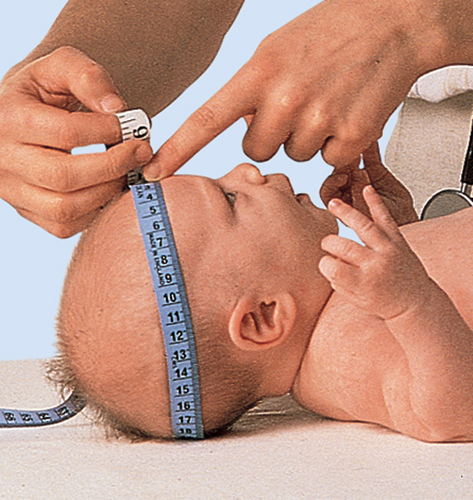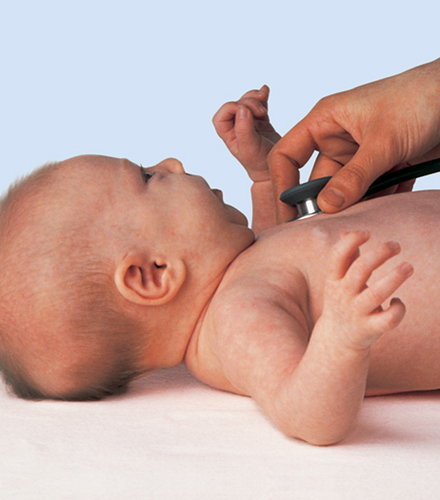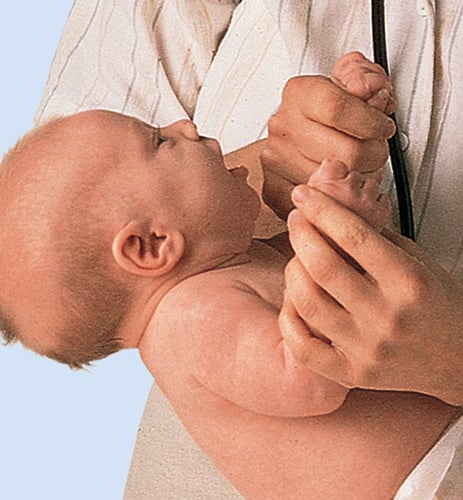At about four to eight weeks following the birth, you
will have a postpartum checkup with a doctor at your ob/gyn’s practice.
This checkup is to see if you are physically and emotionally well. Your
baby will also have a physical and developmental checkup around this
time.
Your six-week postpartum checkup
is the ideal time to talk to your doctor about any problems or concerns
you have, and to receive reassurance that you have recovered well after
the birth.

Your assessment
In the first couple of
months following the birth of their baby, the majority of women don’t
experience any major health concerns and will revert back to their
prepregnant health status. However, it’s good practice to have a general
assessment to reassure you that you are well and coping with the early
transition to motherhood.
Your postpartum checkup is
an ideal opportunity for you to consult your doctor about any concerns
you have following the birth of your baby. Any worries about yourself
can be discussed at this appointment, from your mood to any
apprehensions about having sex again. Your doctor will offer you advice
and possibly treatment, and will also be able to refer you to a
specialist for further treatment if necessary.
Your physical checkup
Your doctor will
do routine checkups, such as taking your blood pressure. He or she will
also ask if you have any concerns, how you’re feeding your baby, and, if
you are breast-feeding, whether you’ve had any problems with your
breasts and lactation.
Your uterus will
have returned to nearly its prepregnancy size (about the size of the
palm of your hand) and will not be able to be felt. However, your doctor
may check your abdomen to see if the muscles are returning to normal
since occasionally the abdominal muscles separate after birth, known as
“diastasi recti.” If the muscles are more than four fingers apart, you
may be referred to a physical therapist. Pilates and core conditioning
exercises can help and your doctor may talk to you about these exercises.
Backaches can be a problem after the birth, exacerbated by the pregnancy hormone relaxin ,
which softens muscles and ligaments and remains in the body for a few
months after pregnancy. If you’re suffering from backaches, your doctor
may talk to you about your posture, particularly when you’re carrying or
feeding your baby, and about the benefits of exercise.
If you had a cesarean,
the incision will be looked at to check that it has healed well. You may
still feel numbness around the site of the incision, but sensation
should gradually return as the nerve endings renew themselves.
If you haven’t had a Pap
smear in the last three years, you will likely be given one on the spot,
unless you’re bleeding heavily.
Checking your bladder
You will be asked if you
have problems urinating, and may be asked for a urine sample if you have
symptoms such as frequent urination or stinging when passing urine.
Stress incontinence, or leaking urine ,
is common after childbirth, so don’t feel embarrassed to mention this
to your doctor. He or she may encourage you to do Kegel exercises , and if the problem persists you may be referred to a physical therapist for bladder-training exercises.
Your stitches
If you’re still sore
from stitches, your doctor will check that these are healing properly.
Although most stitches are absorbable, they can take up to three months
to completely absorb. Bathing can sometimes help the stitches absorb,
but if you continue to have problems your doctor may recommend Sitz
baths two or three times a day or a topical anesthetic cream .
Your emotional well-being
In addition to checking
you physically, the doctor will also assess your emotional and mental
health. Many women feel extremely tired in these early weeks, as night
feedings and constant demands begin to take their toll. However, if you
are feeling low, overly tired, or depressed a lot of the time, you may
be suffering from postpartum depression,
so it’s important not to ignore these symptoms. Talk to your doctor
about how you are feeling; he will be able to offer support and refer
you to experts in treating depression.
Looking at your lifestyle
Your doctor will advise
you on healthy eating and lifestyle measures. If you smoke, you’ll be
given information about support groups in your local area to help you
stop smoking.
Assessing your baby
Your baby’s checkup
A pediatrician will want to see your baby at around 4 days, 1 month, and 2 months to do a physical checkup and look at how your baby is growing and developing.
The doctor will perform a similar examination to the newborn checkup .
He or she will examine your baby’s hips, spine, eyes, heart, and the
pulses at the top of the legs. In boys, it’s important to check that the
testes are located in the scrotum. This is also a chance to look for
subtle problems such as a heart murmur, which can develop after birth.
Your baby will be weighed and his head circumference measured. The
doctor will ask how your baby is feeding and check for signs of
jaundice. Your baby’s development will be checked too: whether he has
head control, is starting to smile, and can focus on an object or face a
foot away, and follow a moving object. Your baby should receive some
immunizations during these early visits. All of these findings will be
recorded in a record of your baby’s growth and development.
The head circumference is taken and the fontanelles, the soft areas on your baby’s head, are checked.

Your baby’s heart rate will be listened to and the doctor will monitor and check his breathing.

To check head control, your doctor will gently lift your baby up by his arms to see how he holds his head.

| Q: |
Is it true that I don’t need to worry about getting pregnant again while I’m breast-feeding?
|
| A: |
If you are breast-feeding, you may not have a period for a while
after giving birth. Although this means you are less likely to
conceive, you can still ovulate, so you shouldn’t assume that you don’t
need to use contraception. The doctor or nurse will discuss
contraception and sexual health with you and may recommend the
progesterone-only pill, which can be prescribed from 21 days if you’re
breast-feeding.
|
| Q: |
I’m bottle-feeding my baby and am worried about getting pregnant again. How soon could this happen?
|
| A: |
If you decided to bottle-feed, you will probably have had your
first period prior to this checkup and so certainly could become
pregnant again. Although your doctor will have already discussed
contraception with you, this will be addressed again at your six-week
checkup. The doctor or nurse will want to check that you have
contraceptive measures in place; if not, he or she will offer you
guidance and advice.
|
| Q: |
I had stitches and have felt too anxious to have sex since the birth. Is this normal?
|
| A: |
Yes, plenty of women feel this way and many wait to resume sex
until after their postpartum checkup. During this checkup, the doctor or
nurse will be able to confirm that your incision has healed, and offer
reassurance about resuming sex. On the other hand, there is nothing
wrong with having sex before this checkup as long as you have stopped
bleeding. When you do have sex, you may need to use a lubricant (KY
jelly), particularly if you’re breast-feeding since your hormones can
cause some vaginal dryness.
|